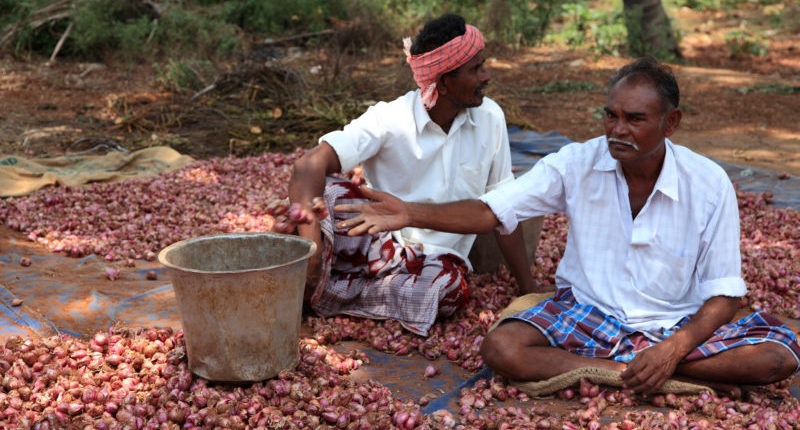The price of onions is soaring high currently due to heavy rainfall in Southern India. There has been a rise in prices since the second week of September. The government felt the need to take proactive steps to control the cost. The Department of Consumer Affairs through a Dashboard monitored the rise in prices of onion very closely on a day-to-day basis and called for immediate steps to cool off the spiralling trend.
The Essential Commodities ( Amendment) Act, 2020 (EC Act) provides for the imposition of the stock limit under extraordinary prise rise circumstances. The prices in onions have increased by more than 100% when compared to the last five years.
The All India average retail price variation of onions as on 21 October 2020, when compared to the previous year, is 22.12% and when compared to the last five years average is 114.96%. This 100% price rise in onions leads to the price triggers under the EC Act. Thus, the government imposed the stock limit on onions with effect from 23 October 2020 to 31 December 2020. The stock limit imposed on the onions is 25 million tonnes (MT) for wholesalers and 2MT for retailers.
In September, the government took a pre-emptive step to ban the export of onions for ensuring the availability of onions to domestic customers at reasonable prices before the arrival of Kharif onions. This step by the government moderated the price rise to some extent. Due to heavy rainfall in the onion growing districts of Karnataka, Maharashtra, Madhya Pradesh and Andhra Pradesh, there are concerns about damage to the Kharif crop. The rains have contributed to a sharp increase in onion prices.
Also Read: Relaxation of Visa and Travel Restrictions in the Wake of the Pandemic
The government has taken steps to dispose of the onions from Open Market Sales which will be increased further to bring down the price rise. Measures are taken by the government to facilitate import of onions from 21 October 2020 to ensure availability of onions in the Mandis. There is relaxation in the conditions of fumigation and additional declaration on Phytosanitary Certificate (PSC) under the Plant Quarantine Order, 2003 (PQ Order) for imports till 15 December 2020.
The Indian High Commissions are contacting the traders of the relevant countries for ensuring higher imports of onions to our country. As there is relaxation on fumigation and PSC, the fumigation will be in India. The Indian importer will fumigate the consignment of imported onions that arrive on the Indian ports either through land or sea through an accredited treatment provider.
There will be no additional inspection fee for the release of the imported onions after fumigation. Importers need to give an undertaking that the use of the imported onion will be only for consumption and not for propagation. There are no four times additional inspection fee on account of non-compliance of imports under the PQ Order on these consignments of imported onions for consumption.
The MMTC will start importing red onions to meet the demand-supply gap apart from the imports by the private traders. Requisite actions under the Prevention of Black Marketing and Maintenance of Supplies of Essential Commodities Act, 1980 is also taken to prevent any hoarding and black marketing of onions by unscrupulous elements.
Since the taking up of these steps by the government, the onion prices have fallen. The onion prices fell up to Rs.10 per kg in Delhi, Mumbai and Chennai after the government imposed a stock limit on traders. Even in Bangalore and Bhopal, the prices fell up to Rs.5 – 6 per kg as per government data. The steps taken by the government are turning out to have a positive effect on reducing the costs of onions.
For any clarifications/feedback on the topic, please contact the writer at

I am an Advocate by profession. I interpret laws and put them in simple words. I love to explore and try new things in life.





